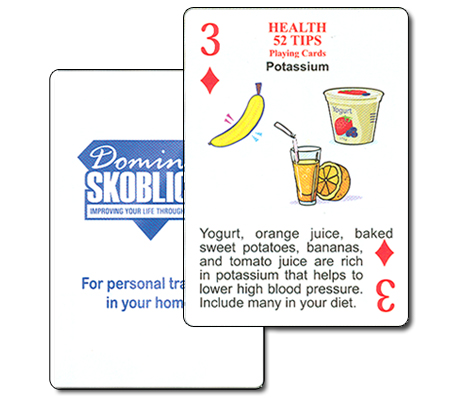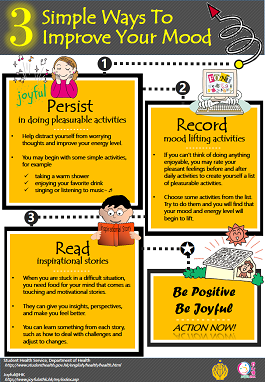When time is of the essence, incorporating High-Intensity Interval Training (HIIT) into your routine can be a game-changer. HIIT involves short bursts of intense exercise followed by brief periods of rest or low-intensity activity. This type of workout not only burns calories quickly but also boosts your metabolism, helping you burn more fat even after the workout is over. HIIT sessions can be as short as 20 minutes, making it easier to fit into a busy schedule. To maximize results, try alternating between exercises like sprinting, jumping jacks, and burpees, pushing yourself to the limit during each high-intensity interval.
Embrace a Low-Carb, High-Protein Diet
Diet plays a crucial role in weight loss, and for those looking to shed pounds rapidly, adopting a low-carb, high-protein diet can be particularly effective. By reducing your intake of carbohydrates, your body is forced to use stored fat for energy, leading to quicker weight loss. Focus on consuming lean proteins like chicken, fish, and tofu, which help build muscle and keep you feeling full longer. Vegetables, especially leafy greens, should also be a staple in your meals. Remember to avoid sugary drinks, white bread, and other high-carb foods that can sabotage your efforts.
Incorporate Strength Training
Strength training is often overlooked in rapid weight loss plans, but it’s essential for preserving muscle mass while shedding fat. Building muscle not only tones your body but also increases your resting metabolic rate, meaning you’ll burn more calories even when you’re not working out. Aim to include strength training exercises such as squats, deadlifts, and bench presses in your routine at least three times a week. Don’t be afraid to lift heavier weights, as this will accelerate muscle growth and fat loss.
Stay Hydrated and Avoid Liquid Calories
Water is your best friend when trying to lose weight quickly. Not only does it keep you hydrated, but it also helps control your appetite. Sometimes, our bodies confuse thirst with hunger, leading to unnecessary snacking. By drinking plenty of water throughout the day, you can prevent this. Additionally, steer clear of liquid calories found in sugary drinks, alcohol, and even fruit juices. These beverages can add up quickly and derail your weight loss progress. Instead, stick to water, herbal teas, and black coffee to stay on track.
Prioritize Sleep and Manage Stress
Sleep and stress management are often underestimated in their impact on weight loss, but they are crucial components. Lack of sleep can disrupt your hormones, leading to increased hunger and cravings for unhealthy foods. Aim for 7-9 hours of quality sleep each night to support your weight loss goals. Equally important is managing stress, as high levels of cortisol, the stress hormone, can lead to fat retention, particularly around the belly. Incorporate relaxation techniques such as meditation, yoga, or deep breathing exercises into your daily routine to keep stress in check.
Practice Intermittent Fasting
Intermittent fasting has gained popularity for its effectiveness in weight loss, especially when time is limited. This eating pattern involves cycling between periods









































 On the subject of healthcare, males have a reputation for being notoriously ostrich like – in that they bury their head in the sand, hoping the problem will go away. Because of this, once you drink soda, you end up eating more complete calories ( 2 , 3 ). Vitamin D. In case you are older than 70, you want 800 IU (international models) of vitamin D a day (600 IU for adults underneath 70). Anne Petrin, a memory care nurse practitioner with Lee Health, says it is irritating for sufferers who struggle to recollect names, occasions, even everyday information.
On the subject of healthcare, males have a reputation for being notoriously ostrich like – in that they bury their head in the sand, hoping the problem will go away. Because of this, once you drink soda, you end up eating more complete calories ( 2 , 3 ). Vitamin D. In case you are older than 70, you want 800 IU (international models) of vitamin D a day (600 IU for adults underneath 70). Anne Petrin, a memory care nurse practitioner with Lee Health, says it is irritating for sufferers who struggle to recollect names, occasions, even everyday information.

 Relating to healthcare, men have a repute for being notoriously ostrich like – in that they bury their head in the sand, hoping the issue will go away. Research suggests that people who consume increased amounts of those fats are much less prone to have dry eyes. Ignore the fad diets and tendencies, and deal with easy, complete meals that make you’re feeling nice and aren’t created in a manufacturing unit. Right here you will discover out why it is significantly important to take excellent care of your ft at this time of 12 months.
Relating to healthcare, men have a repute for being notoriously ostrich like – in that they bury their head in the sand, hoping the issue will go away. Research suggests that people who consume increased amounts of those fats are much less prone to have dry eyes. Ignore the fad diets and tendencies, and deal with easy, complete meals that make you’re feeling nice and aren’t created in a manufacturing unit. Right here you will discover out why it is significantly important to take excellent care of your ft at this time of 12 months.
 With regards to healthcare, males have a reputation for being notoriously ostrich like – in that they bury their head within the sand, hoping the issue will go away. Japanese researchers asked more than 1,000 participants (common age: 67) to elevate one leg for up to 60 seconds, then compared their performance with scans of their brains Those that could not balance for greater than 20 seconds have been extra likely to have cerebral small blood vessel illness (linked to stroke and dementia) even if they didn’t have basic symptoms.
With regards to healthcare, males have a reputation for being notoriously ostrich like – in that they bury their head within the sand, hoping the issue will go away. Japanese researchers asked more than 1,000 participants (common age: 67) to elevate one leg for up to 60 seconds, then compared their performance with scans of their brains Those that could not balance for greater than 20 seconds have been extra likely to have cerebral small blood vessel illness (linked to stroke and dementia) even if they didn’t have basic symptoms.


 Relating to healthcare, males have a popularity for being notoriously ostrich like – in that they bury their head in the sand, hoping the issue will go away. Control the fat you add whenever you’re cooking or serving all these foods because that’s what will increase the calorie content, for example oil on chips, butter on bread and creamy sauces on pasta. Attempt a new hobby or any exercise that sparks your interest.
Relating to healthcare, males have a popularity for being notoriously ostrich like – in that they bury their head in the sand, hoping the issue will go away. Control the fat you add whenever you’re cooking or serving all these foods because that’s what will increase the calorie content, for example oil on chips, butter on bread and creamy sauces on pasta. Attempt a new hobby or any exercise that sparks your interest.

 In terms of healthcare, men have a reputation for being notoriously ostrich like – in that they bury their head in the sand, hoping the issue will go away. Care for your self, both mentally and physically. Additionally, strive to not eat or drink caffeinated drinks near bedtime. Subsequent time, I am going to have a salad with low-fats dressing. Analysis suggests that individuals with mild eczema who drink oolong tea thrice a day may show improvement in itching and other symptoms.
In terms of healthcare, men have a reputation for being notoriously ostrich like – in that they bury their head in the sand, hoping the issue will go away. Care for your self, both mentally and physically. Additionally, strive to not eat or drink caffeinated drinks near bedtime. Subsequent time, I am going to have a salad with low-fats dressing. Analysis suggests that individuals with mild eczema who drink oolong tea thrice a day may show improvement in itching and other symptoms.

 You’ll be able to go to the Residence Web page or try searching again. Change your exercise patterns to suit the season, strive taking over walking or biking. Healthy older adults should do four forms of actions often: aerobic (or endurance) train and activities to strengthen muscles, improve stability, and increase flexibility.
You’ll be able to go to the Residence Web page or try searching again. Change your exercise patterns to suit the season, strive taking over walking or biking. Healthy older adults should do four forms of actions often: aerobic (or endurance) train and activities to strengthen muscles, improve stability, and increase flexibility.
